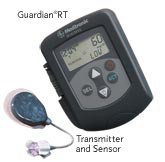Finding the Words
It's funny how sometimes you just can't find words. No matter how hard you try.
That's been me over the past week. Maybe it's because this disease is suddenly feeling more relentless of late.
The highs, the lows-- they continue.
And the exhaustion, too.
I realize I'm not alone-- thus, even writing this has me feeling somewhat sheepish.
So I'm just gonna launch into something more specific-- and hope a decent post emerges...
Joseph's endo appointment.
While his A1c rose (from 7.4 at his last visit to 7.8)-- his growth was amazing.
"This is the biggest growth spurt we've seen in a while," his doc tells us enthusiastically.
And when Joseph stands in front of her -- sure enough -- they literally see eye-to-eye.
"You're going to pass me by your next visit," she tells him with a smile.
But then, the downside of the appointment, after Joseph and Evan retire to the lobby. When I ask a question that's been on my mind for a very long time.
"I know I've told you that Joseph never wakes up when he's low overnight-- but I've been wondering if this is something that will change when he's grown?"
His endo pauses, looking sympathetically at both me and Ryan. And then answers my question:
"Well, we've found that as children get older they actually become less sensitive to overnight lows. This is why I worry about many of my patients who are going off to college. They tell me that they always wake up when they're low. But that is really quite rare. Most people will sleep through a low blood sugar.
"I tell these kids that they have to come up with a plan."
A plan.
God.
I swallow this down. Hard.
And feel grateful that I'm not hearing it alone. That Ryan's hand is right there.
"All right, then," I say, struggling not to cry.
And then I remember something:
"Have there been any new developments on the continuous glucose monitor front?"
"A number of kids in my practice are wearing the Guardian with a lot of success. We're even finding that they don't need to change the sensor every three days.
"In fact, the device appears to be more accurate if they wear the sensor longer-- as long as two weeks."
While this sounds so very promising, I remind her that Joseph wears an Animas pump. Thus he'd have to wear the (rather bulky) Guardian receiver, in addition to his pump-- versus Minimed's all-in-one pump/Guardian combo.
"Joseph has seen the device on another child," I tell her, "and he's just not ready to wear that much equipment."
"It's still worth exploring," the doc continues, "I think that Joseph could gain a great deal of benefit from it."
Then, of course there's the money-- insurance coverage for a CGMS is still not there yet. As we leave this visit, I'm doing the math in my head and it's not coming out right.
There's just too many things: diabetes supplies, preschool for Evan, braces for Joseph...
So I'm left with a mixed bag of emotions:
Sadness and frustration over the fact that we can't get this thing RIGHT NOW for our son;
Impatience, because I desperately want this technology to improve SOON;
And hope.
Because even if we can't jump on this right now, by the time our son goes to college he'll be wearing (or implanted with) something that will take our place during those long nights.
Something that -- I have to believe -- will keep him safe.







